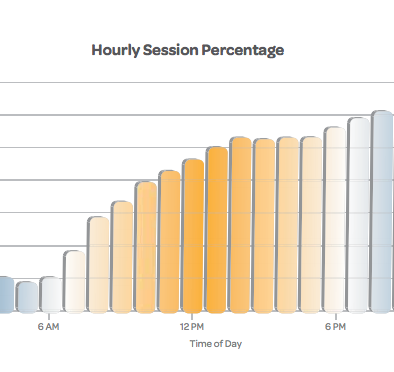It’s fairly well known that Sina Weibo, the “Twitter-like” Chinese social media platform, consistently censors posts. But how often – and how quickly – does it do so? A new study by an independent researcher, in collaboration with Rice University and the University of New Mexico, examines how the site’s operators sort through over 100 million daily messages to find and delete “controversial” posts.
Perhaps the most important finding: “deletion times were found to be significantly shorter for a subset of users who tended to post deleted content most often, an indication that Sina Weibo actively monitors the activity of some users.”
Weibo is China’s most popular microblogging service, with nearly 300 million users. Like Twitter, the site allows users to post 140-character messages with usernames and hashtags.
Research from the study reveals that Sina Weibo monitors and deletes posts using a combination of keyword-matching software and human censors. The platform’s operators closely monitor certain individuals known for frequently posting “controversial” messages, and is often able to delete objectionable posts within five minutes. Sina Weibo also has a “sophisticated mechanism” in place that can find and remove all reposts of a deleted post – often within five minutes of that post being deleted.
The study – which is still undergoing peer review – began by following 25 “sensitive” users, found by searching for those who had used words previously banned by the platform. Then researchers added anyone who retweeted these “sensitive” users more than five times (roughly 3,000 users). As the study progressed, any user out of the extended group with more than five deleted posts was added to the “sensitive” group.
The research team measured how often and how quickly posts were deleted from the study group. Their software could track – within one minute – how long a post was online before it was deleted by Sina Weibo.
How did the numbers play out?
- after 15 days, the sensitive group included 3,567 users
- on average, about 4,500 posts by the sensitive users were deleted each day
- roughly 12% of the total posts from ‘sensitive’ users were eventually deleted
- deletions happened most heavily in the first hour after an original post had been made
- nearly 90% of deletions occurred within 24 hours
According to lead researcher Dan Wallach, professor of computer science at Rice and co-author of a forthcoming study, “Other people have explored censorship on Weibo, but this work is focused on the speed at which censorship happens.” It is that focus that reveals how closely the platform is watching users known for “controversial” posts.
So far, researchers have collected 470 million posts from the Weibo public timeline and 2.38 million posts from a user timeline. Wallach adds, “We have enough of these posts to be able to run topical analysis algorithms that let us extract the main subjects that Weibo’s censors seemed concerned with on any given day.”
What are the implications of the study? “Weibo gives us a window into the future for what Internet censorship of social media around the world may look like,” says Wallach. He hopes that the research will indicate “how laws created by governments and implemented by the private sector can affect free speech everywhere, including here in the U.S.”


